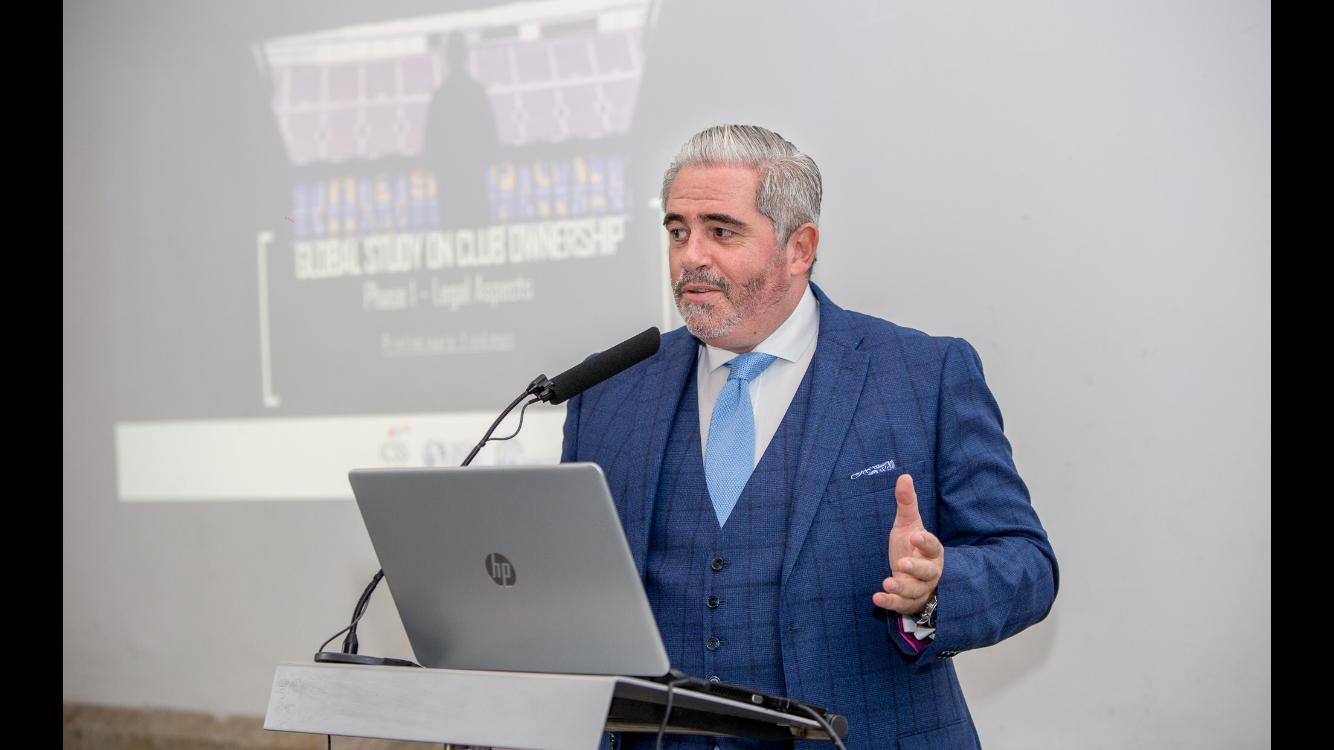By Paul Nicholson
February 19 – If sport, and football in particular, wants to get rid of the increased presence of organised crime both within their ranks and profiting from their activity, then sport must allocate some of its revenue to tackle criminals head-on.
The World Congress on Global Leadership and Anti-Corruption in Sport, organised by the Sports Integrity Global Alliance (SIGA), ended yesterday with a call to action for more funding to tackle organised crime at the highest levels, to jail criminals and to confiscate their funds.
SIGA CEO Emanuel Macedo de Medeiros (pictured) called for the establishment of a Financial Solidarity Fund for Sport Integrity. “It is time that a small percentage of sport’s wealth be allocated to promote the integrity of sport. There has to now be the creation of an action group from all sides of the industry with the funds and support that give it the teeth and means to do more.”
The conference had seen a procession of speakers outline the depth of organised crime in football in particular with the clear message that more effort needed to be done to stop the criminal infiltration of sport with increased investigation and prosecution of the heads of international criminal gangs.
Catching a few players for fixing matches was not going to be the solution to a sports crime wave that is virtually unprosecuted whether it is match-fixing, money laundering or tax evasion.
Fernando Veiga Gomes, president of the Sports Law Commission, Union Internationale d’Avocats, outlined the scale of the problem in a sports industry that generates about $80 billion of revenue, $35 billion of it in football.
“In Europe 90% of clubs don’t publish accounts. 77% of clubs are insolvent or close to being. Financial Fair Play rules were a good start but they are not enough. Tax debts are increasing and have reached $1.4 billion. We are seeing money from unknown sources come into the game and on top of that we don’t pay our taxes,” said Gomes.
Gomes said that in a football business where the top four leagues generate 60% of the revenue with just 11% of the clubs, the picture elsewhere is of poor management and unqualified boards.
He also points to a shift in how money and investor influence has moved within football. “FIFA has forbidden third party ownership (TPO) of players so investment has shifted from TPO to club ownership. In most cases we have no idea who the ultimate beneficiary owners of clubs are. There are clear conflicts of interest where agents are the ultimate beneficial owners of clubs that have player who they control. These guys have the power to influence and change teams…FIFA has new limits on loans and agents but there is one piece missing that relates to the ownership of clubs,” said Gomes.
Chris Sinclair from the Business Intelligence Unit, anti-financial crime at Deutsche Bank said: “It is time to app the same standards and expectation to sport as we apply to private sector companies and corporations…it is not just about prosecuting one person who took a bribe but making clear to organisations they have the structure to manage it.
“It is hard for people in a bank to know what to look for in terms of money laundering. Banks need to know more about the business.”
Reinaldo Carneiro Bastos, president of the Paulista Football Federation in Brazil, which signed an agreement to become a member of SIGA at the meetings, gave a different perspective. “There is the wide perception that corruption exists (in Brazil) and when it came to it a lot was related to a judge who became a minister of justice…we also have the problem that only six of our clubs are companies, the rest are associations.
“We recognise the corruption problem exists but we are making a generation change, and putting in place what must be done.”
A share of sports revenues to help with the integrity initiative would help speed that process up.
Contact the writer of this story at moc.l1713589378labto1713589378ofdlr1713589378owedi1713589378sni@n1713589378osloh1713589378cin.l1713589378uap1713589378

